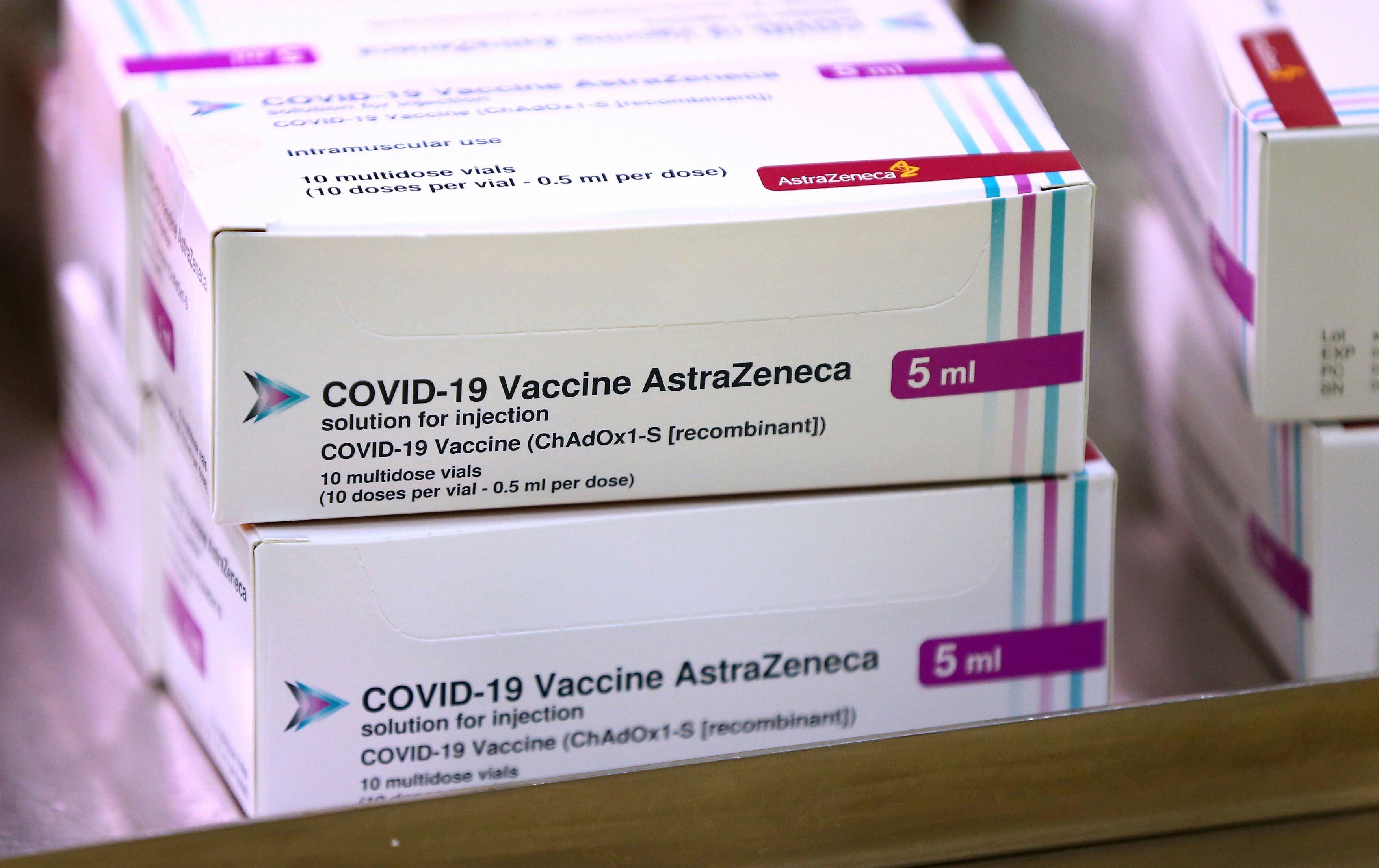‘Major milestone in battle against Covid’: NHS prepares to administer first Oxford vaccines
Hundreds of new vaccination centres are due to open next week as part of mass roll-out scheme

Your support helps us to tell the story
From reproductive rights to climate change to Big Tech, The Independent is on the ground when the story is developing. Whether it's investigating the financials of Elon Musk's pro-Trump PAC or producing our latest documentary, 'The A Word', which shines a light on the American women fighting for reproductive rights, we know how important it is to parse out the facts from the messaging.
At such a critical moment in US history, we need reporters on the ground. Your donation allows us to keep sending journalists to speak to both sides of the story.
The Independent is trusted by Americans across the entire political spectrum. And unlike many other quality news outlets, we choose not to lock Americans out of our reporting and analysis with paywalls. We believe quality journalism should be available to everyone, paid for by those who can afford it.
Your support makes all the difference.The NHS is gearing up to administer the first Oxford/AstraZeneca jabs in the UK from tomorrow morning, as the head of the health service in England insisted that it would mark a “major milestone” in the fight against the coronavirus.
As batches started arriving at hospitals on Saturday, the government said hundreds of new vaccination centres are due to open next week as part of a mass roll-out scheme that will be “the biggest in NHS history”.
More than 750,000 people have received the first dose of the Pfizer/BioNtech jab – the first vaccine to be approved by the UK medicines regulator – but ministers insist the new jab will be easier to roll out nationwide.
One of the first hospitals to take delivery of the vaccine was the Princess Royal Hospital in Haywards Heath, part of Brighton and Sussex University Hospitals NHS Trust.
Dr George Findlay, chief medical officer and deputy chief executive at the trust, said that because the Oxford jab can be kept at normal fridge temperatures, it is "much easier" to administer when compared with the Pfizer/BioNTech vaccine, which requires cold storage of about -70C.
The government said the first vaccines would be delivered to a small number of hospitals during the first few days for surveillance purposes, before the bulk of supplies are then sent to hundreds of GPs later in the week.
It is expected that about 530,000 doses of the vaccine will be available from Monday, with Oxford University Hospital NHS Foundation Trust being among the first sites to administer the jab. The Times reported that 2 million doses are due to be supplied each week by the middle of January.
In a statement, Boris Johnson said: “The Oxford vaccine is a triumph of British science and I want to thank everyone involved in its development and production.
“From tomorrow, the NHS will start using the Oxford vaccine to give greater protection against Covid-19. We know there are challenges still ahead of us over the coming weeks and months, but I’m confident this is the year we will defeat coronavirus and start building back better.”
Sir Simon Stevens, the chief executive of NHS England, said the rollout of the vaccine will mark a “major milestone in humanity’s battle against coronavirus”.
“The vaccination programme – the biggest in NHS history – has got off to a strong start, and by New Year’s Day we’d been able to vaccine more people than the rest of Europe combined,” he said.
“Now we have a second, more versatile jab in our armoury, and NHS staff are expanding the programme as extra vaccine supplies come on stream … The arrival of the Oxford jab, coupled with more Pfizer vaccine being made available, will allow us to protect many more people faster.”
However, the government’s change in approach to administering the vaccine – by delaying the time between the first and second jab from three to 12 weeks – was criticised by the top US expert on infectious diseases.
Dr Anthony Fauci said the “optimal time” for patients to receive the second dose was 21 days after the first, telling CNN that he “would not be in favour” of the strategy pursued by Boris Johnson’s government.
The British Medical Association has also insisted it was “grossly unfair” that patients who had already received the first Pfizer jab were having their appointments cancelled because of the change in guidance on Wednesday.
But Professor Anthony Harnden, deputy chairman of the Joint Committee on Vaccination and Immunisation (JCVI), stressed that delaying the second dose was the correct approach.
Pressed on Dr Fauci’s comments, he replied: “That’s up to the Americans what they do … We’re not saying that you shouldn’t have a second dose – you do need a second dose – but that it can be temporarily delayed so that we can get many, many more people vaccinated in this vulnerable and elderly group as well as the clinically extremely vulnerable groups so that we get on top of this virus much quicker.
“We are in a dire situation in this country at the moment. The virus is rapidly spreading and the more vaccine we can get into these priority groups that we’ve identified, the more deaths and hospitalisations that we will prevent.”
Matt Hancock, the health secretary, said: “From tomorrow, the British public will begin to receive a second highly effective vaccine, starting with the most vulnerable and frontline care homes and NHS staff [in] another significant milestone in the expansion of the vaccination programme.”
Join our commenting forum
Join thought-provoking conversations, follow other Independent readers and see their replies
Comments